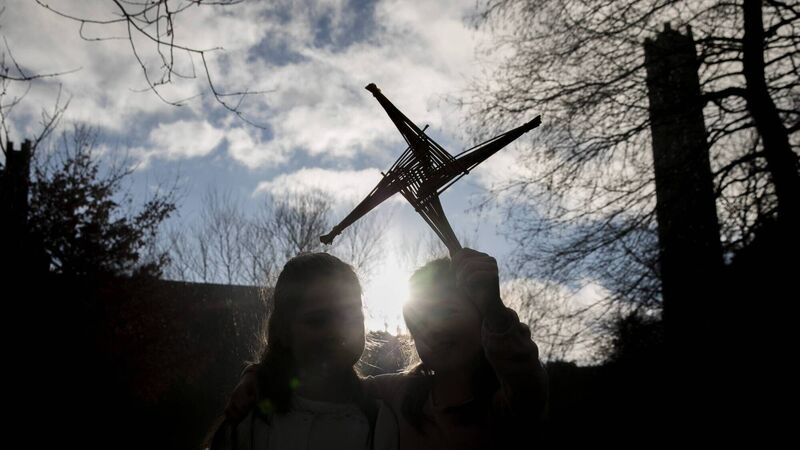Kildare to celebrate Spirit of St Brigid

Holly Lane McBride, 6, and Eabha O'Brien, 5, both from Kildare, mark the launch of the Spirit of Kildare Festival in Kildare Town. Kildare is gearing up to welcome over 100,000 visitors this January and February as the Brigid 2025 - Spirit of Kildare Festival.
The new Minister for Agriculture, Food and the Marine, Martin Heydon, played a key role in persuading the previous Government to create a new national public holiday to celebrate Brigid of Kildare, a patron of Ireland with Saints Patrick and Colmcille.
But his appointment as the political head of the country’s oldest Government department is not the only link with Lá ‘le Bríde, which is on this Saturday with next Monday designated as the Bank Holiday.











